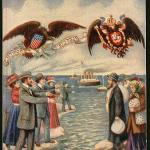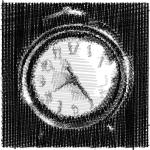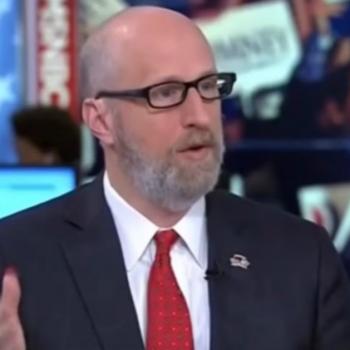More people enter the conservation room about the ties between conservative Presbyterian theology and anti-semitism and white nationalism. Ivan Strenski, who teaches religion at UC Riverside, recently wrote:
In their confidence of Christian success at displacing Jews from their role as Chosen People, the Earnest family’s Orthodox Presbyterians are not special. They line up predictably with a two millennia-long line of Christian apologists. This line of Christian theologians essentially shares the same view of the supersessionist course of salvation history with respect to Judaism.
Unfortunately for Christians, Abrahamic supersessionism doesn’t halt for their convenience. Muslims view Muhammad as the “Seal of the Prophets,” and Islam as the latest and final stage in a long line of succession and supersession. Small wonder with a serious challenge to Christian supersessionism appearing on the horizon, that Earnest boasted online of his March arson attack on a mosque in Escondido, San Diego County. So, Earnest wasn’t prepared to leave matters to Providence here, either, but instead nudged it along by seeking to replace the new Muslim replacers all the while making sure that the long-replaced Jews in Poway stayed securely in place.
So however sincere the Earnest family may have been in absolving their religious community of any connection to the Poway attack, the flood of all that “replacement” theology makes one wonder. When and how can one disaffiliate young John T. Earnest’s attempts actually to “replace” Jews and Muslims by physically eliminating them, on the one side, from the theological vision of their “replacement” incessantly preached in his church, on the other? Is someone going to argue that everyday behavior and religious formation occupy different universes of discourse and practice? If so, why bother with preaching, teaching or theologizing at all?
Strenski’s admission that replacement theology is hardly a novel position among Christians and Muslims (he left out Mormons) is one of the more refreshing observations in recent chatter. In which case, Orthodox Presbyterians would be unexceptional even if ashamedly so.
What may actually be newsworthy about Orthodox Presbyterians is that they are one of the few communions to produce vigorous dissent from the civil religion and Christian nationalism that still lurks among most Christians — even among those who think they have nothing to do with Christian nationalism. Yet these very people counter white nationalism with a gospelized nationalism that they argue will make the United States conform to God’s laws of equality and charity for all. Some Orthodox Presbyterians reject identifying the cause of America with salvation or God’s efforts to reconcile all things to himself. For these thinkers, the church has a mission that is distinct from the states and to apply religious categories to politics is to invite religious nationalism. The state is simply an institution for preserving a measure of social order in a fallen world.
One of those Orthodox Presbyterians to criticize Americans’ faith in America’s spiritual significance is Richard M. Gamble who has a new book, A Fiery Gospel, on one of the iconic texts of American civil religion, Julia Ward Howe’s “The Battle Hymn of the Republic.” If you want to hear an interview with Gamble, you may listen to one conducted by another Orthodox Presbyterian, Camden Bucey, at Christ the Center.
Also, if you want a flavor of Gamble’s critique of civil religion which borders on Christian nationalism, consider this excerpt from his earlier book, In Search of the City on a Hill, another phrase that has moved from the canon of Scripture into America’s canon of self-important texts:
Today, 50 years after the city on a hill first appeared in modern political rhetoric and nearly 400 years since John Winthrop shepherded his flock to New England’s shores, Americans are left with a secularized metaphor, politicized by the Left and the Right and nearing the point of exhaustion. The metaphor has been forced to carry an impossible load of nationalist, populist and collectivist aspirations. Americans have inherited two political cities looming so large in the media, the political culture and even the church, that together they have eclipsed the historical Winthrop and the biblical Jesus. The biblical metaphor, appropriated by the Puritans and reinvented by modern Democrats and Republicans, has been transformed so successfully into a national myth that few can see or hear these words without all of their modern political meaning attached. Even many Christians, how might be expected to guard their property more vigilantly, argue over which national values the politicized city should stand for and miss the fact that they have lost their metaphor. They argue over which party ought to build the city, over whether Kennedy’s or Reagan’s vision best defines the city, rarely stopping to consider whether Jesus ever had America in mind in the Sermon on the Mount. Such is the power of civil religion in twenty-first century America. Even if Americans manage to convince themselves, in spite of the evidence, that John Winthrop envisioned a glorious future for American ideals and institutions, can they really convince themselves that Jesus intended the United States to take up his disciples’ calling as a city on a hill? Distracted by a contest between two early political cities, Americans forget that the original city on a hill was neither Democrat or Republican. It was not even American. (178-79)












